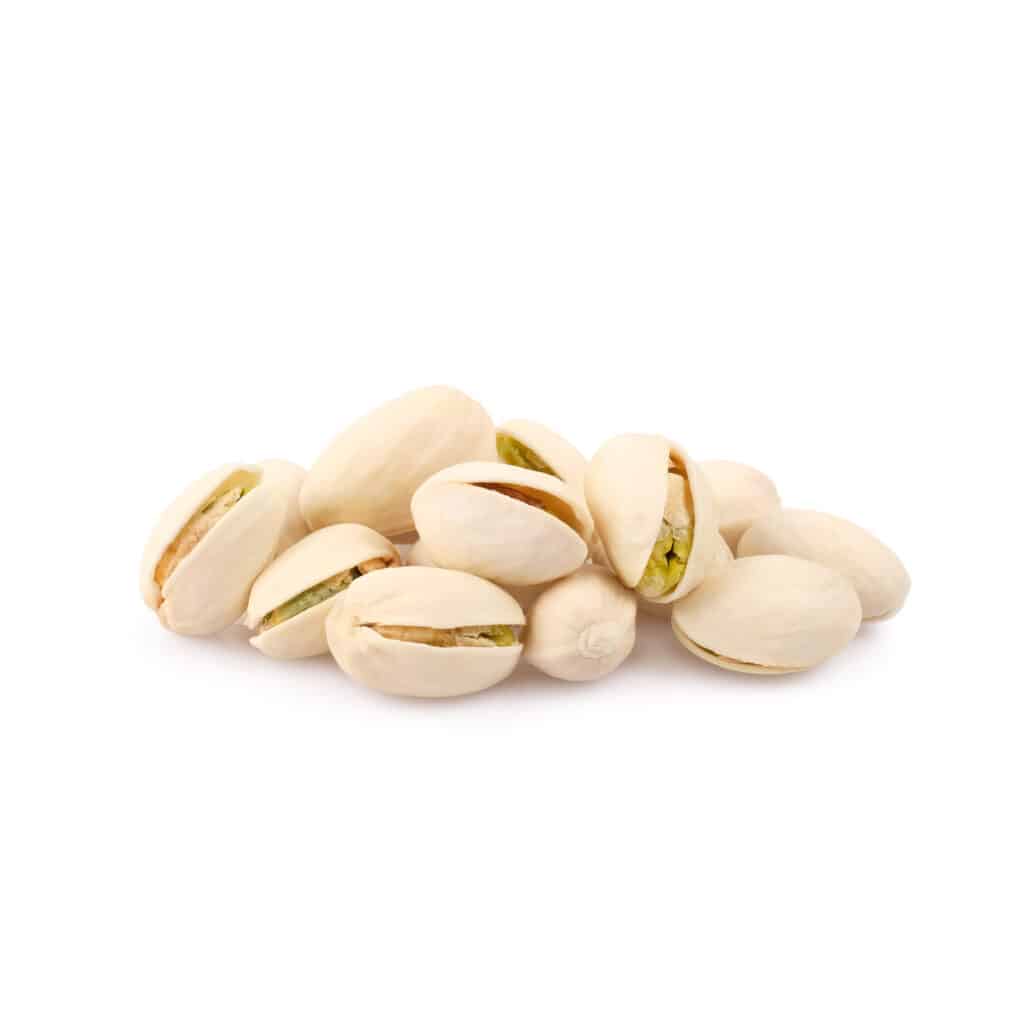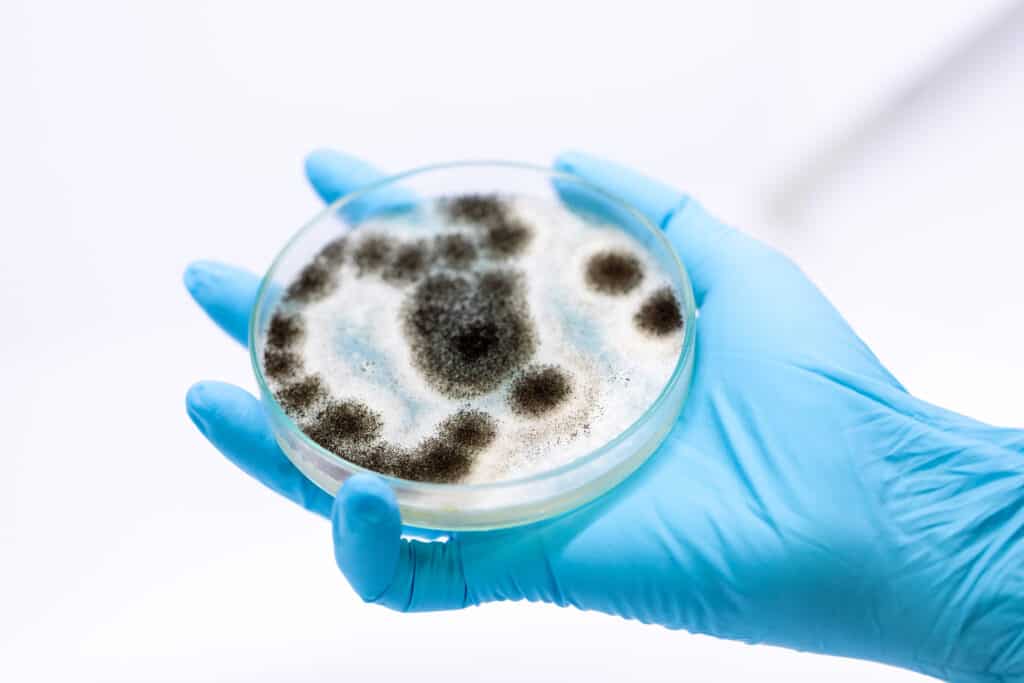Can Dogs Eat Pistachios? It Depends
Pistachios are among the oldest edible nuts known to man. Often, pistachios are cooked and eaten. Pistachios are tasty snacks too. Pistachios are edible nuts embedded with almost all the classes of nutrients. This implies that pistachios contain carbohydrates, proteins, fats, fibers, vitamins, and fibres.
The health benefits of pistachios will make them seem like a perfect snack for dogs. However, this is not the case. So, this brings us to the question, Are pistachios safe for dogs to eat? Well, it depends. In moderate quantities, pistachios are safe for dogs. At the same time, overeating pistachios can cause problems for dogs.
In any instance, do not feed your dog many pistachios. Overeating pistachio nuts can cause pistachio poisoning. Of course, you wouldn’t want your dog to come down with pistachio poisoning. In this article, we’ll be going over several vital things you need to know about feeding your dogs with pistachios.

Pistachios have many health benefits for humans but present risks for dogs.
©Superheang168/Shutterstock.com
Reasons You Shouldn’t Feed Your Dog Pistachios
Although pistachios make a tasty snack, they still have their wrong sides. Pistachios contain several elements in amounts that are unhealthy for dogs. Here are some of the reasons dogs shouldn’t eat pistachios:
High-Salt Content
Pistachio snacks are often prepared with salt and other additives. If dogs take a few pistachios once in a while, there’s nothing to worry about. However, frequent consumption of pistachios can lead to salt poisoning.
Excess salt is harmful to dogs. When there’s too much salt in the dog’s body, the body tends to retain more water leading to increased susceptibility to kidney diseases. Also, excess salt can lead to vomiting, diarrhea, frequent thirst, and tremors.
High-Fat Content
Like every other nut, pistachios contain a high amount of fat and calories. Fat itself isn’t a bad thing. The problem sets in when fat is in excess. Since pistachios contain too many fats, eating excess pistachios can lead to obesity in dogs.
In severe cases, dogs that overeat pistachios often come down with pancreatitis and inflammation of the pancreas. Pancreatitis is a painful condition that can mitigate the dog’s lifespan. A dog suffering from pancreatitis will exhibit some of these signs;
- Dehydration
- Irregular heartbeat
- Diarrhea
- Loss of appetite
- Fever
- Nausea
- Swollen and Tender abdomen
Eating Pistachios Can Make Dogs Choke
Based on observation, dogs don’t usually chew their food before swallowing. Pistachio is a nut, and this poses a threat. Pistachios have a considerable shape, size, and hardness. If dogs swallow pistachios with intact shells, they might choke.
Furthermore, the rough edges of the shells can bruise the soft walls of the alimentary tract. Likewise, pieces from the shell can puncture the stomach and esophagus.
Pistachios Poisoning
The most dangerous part of pistachios is aflatoxin.
Aflatoxins are toxins that are produced by certain fungi. The fungi reside in specific food types, especially grains and nuts. Aspergillus fungi are the primary producers of aflatoxins. Most nuts, including pistachios, bear these fungi. Hence pistachios might be a source of aflatoxins.
Dogs do not have an immune system as resilient as a man’s immune system. Therefore, If dogs consume many pistachios that have aflatoxins, they are at the risk of liver cancer.
Furthermore, when dogs consume pistachio nuts in large quantities, they may have pancreatitis, intestinal distress, and obesity. This condition is called pistachio poisoning. What makes pistachio poisoning peculiar is that it doesn’t depend on whether the dog eats pistachios in small or large amounts. It can happen to the dog as long as it has ingested pistachios.
A dog poisoned by aflatoxins will experience the following; nausea, jaundice, liver disorder, etc. Although pistachio nuts can introduce Aspergillus mold into your dog’s body, causing them to be inflicted with aflatoxins, pistachios aren’t the only way aflatoxins can get into dogs.
Other plants used in dog food production, such as corn and wheat, contain Aspergillus mold. Additionally, pistachios also contain a chemical called Urushiol. This chemical can initiate allergic reactions in dogs, particularly on their faces.

Pistachios contain alfatoxins like Aspergillus mold that can hurt your dog.
©Rattiya Thongdumhyu/Shutterstock.com
Health Benefits of Pistachios
Despite the unpleasant parts of pistachios, they still provide numerous health benefits when consumed moderately. Pistachio nuts are embedded with proteins, minerals, and vitamins in adequate amounts to nourish your dog.
Here are some of pistachios’ health benefits;
Fiber
When dogs eat fiber-rich foods, they feel more satisfied and relieved. Pistachios are an excellent source of fibers. Dietary fibers help with proper bowel movement and ease the dog’s constipation and digestion. Dietary fibers can either be soluble or insoluble, but we find more of the insoluble type in pistachios.
Insoluble fibers of pistachios couple with water in the intestines to move the contents of the GIT more efficiently. This helps the dog’s body to eliminate waste efficiently. This way, your dog won’t have other complications such as hemorrhoids.
The soluble fibers in pistachios help with the proper metabolism of the blood glucose and cholesterol levels in the dog’s body. Furthermore, eating moderate amounts of pistachios can protect dogs against heart diseases because it is an excellent source of unsaturated fatty acids.
Minerals
Pistachios are reservoirs of minerals like potassium, magnesium, iron, calcium, zinc, etc. Eating moderate pistachios can supply dogs with the sufficient amount of copper they require. Copper is an essential micro-mineral required for the production of red blood cells and essential for neurotransmission.
Pistachios also provide dogs with an incredible amount of potassium, a macro mineral involved in several metabolic functions of the dog’s body. Potassium ensures the proper functioning of the heart, muscles, and nerves.
Vitamins
Pistachio nuts are also excellent sources of vitamins. Among these are vitamins A & E. These potent antioxidants can eliminate harmful free radicals in the dog’s body. As a result, antioxidants protect dogs from cancer and other diseases.
Vitamin E, as an antioxidant, protects the dog’s skin from damage and maintains it. Pistachio nuts also contain several B-complex vitamins, such as vitamins B-6, B-12, B-2, and B-5.
Pistachios offer several health benefits, but it has to be fed to dogs in small amounts once in a while. Also, it would be best if you unshelled the pistachios before serving them to your dog to avoid choking.
What To Do If Your Dog Eats Excess Pistachios
What do you do if you find out your dog has overeaten pistachios? Or he’s showing signs of pistachio poisoning? The best is for you to take them to the veterinarian.
There are certain things to watch out for if you detect your dog has taken too much of these nuts. Were the nuts shelled? How much did the dog eat? Eating shelled pistachio nuts can lead to choking and intestinal blockage. Dogs that overeat pistachio nuts can come down with aflatoxin poisoning.
The kind of medical treatment your veterinarian will give to your dog will depend on your dog’s condition. For instance, if the problem is dehydration and frequent thirst, the vet can administer IV fluids to your dog. Severe cases like pancreatitis and aflatoxin poisoning will require more specific treatments. So, do not try to do anything by yourself; take your dog to the vet.

If you suspect your dog is suffering from pistachio poisoning, take him to the vet.
©Ermolaev Alexander/Shutterstock.com
Conclusion
There are several dog treats that you can serve your dogs without worrying about anything. There are better dog treats that can serve as an alternative to pistachios. Pistachios have several health benefits for dogs, but they must be eaten moderately.
The photo featured at the top of this post is © Ricardo Alves 1975/Shutterstock.com
Ready to discover the top 10 cutest dog breeds in the entire world?
How about the fastest dogs, the largest dogs and those that are -- quite frankly -- just the kindest dogs on the planet? Each day, AZ Animals sends out lists just like this to our thousands of email subscribers. And the best part? It's FREE. Join today by entering your email below.
Thank you for reading! Have some feedback for us? Contact the AZ Animals editorial team.






